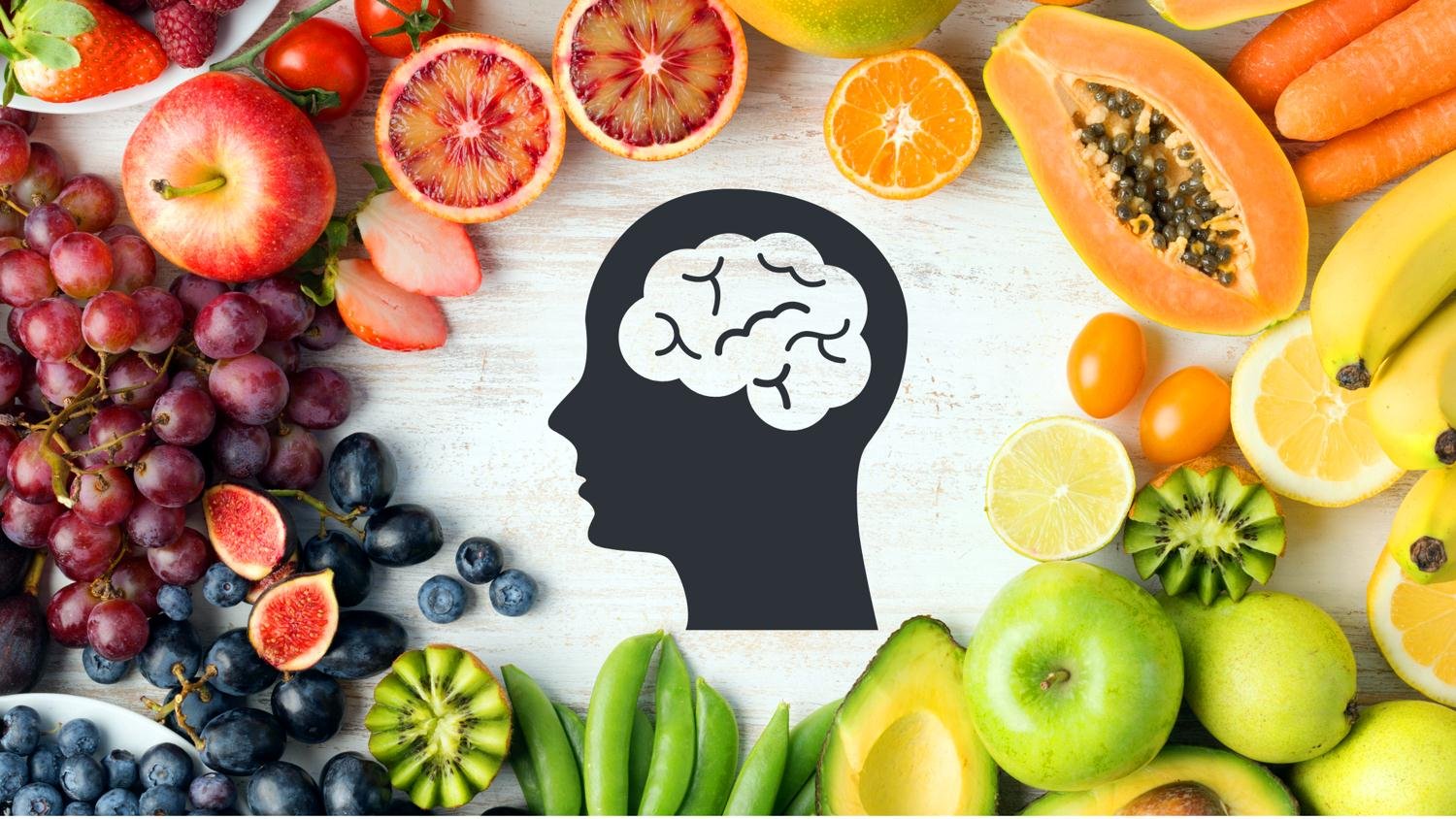The Impact of Nutrition on Brain Function: Foods for Cognitive Enhancement

In this article, we delve into “The Impact of Nutrition on Brain Function: Foods for Cognitive Enhancement.” Discover how nutrition plays a pivotal role in optimizing cognitive abilities, memory, and overall brain health. From essential nutrients like omega-3 fatty acids and antioxidants to brain-boosting foods like fatty fish and blueberries, we explore foods that can enhance cognitive function. Uncover the intriguing gut-brain connection and learn about the positive impact of hydration, exercise, and mindful eating on brain health.
In today’s fast-paced world, the importance of optimal brain function cannot be overstated. Our cognitive abilities directly influence how we perform daily tasks, make decisions, and maintain overall well-being. One crucial aspect of supporting brain health is nutrition. What we eat significantly impacts our cognitive function, memory, and overall brain health.
Read More: How to Make the Switch to an Organic Way of Life
Nutrients for Brain Health
Omega-3 Fatty Acids
Omega-3 fatty acids are vital for brain health, particularly docosahexaenoic acid (DHA). Found in fatty fish like salmon and mackerel, DHA supports brain cell communication and helps reduce inflammation, contributing to better cognitive function.
Antioxidants
Antioxidants, such as vitamins C and E, combat oxidative stress in the brain caused by free radicals. Berries, especially blueberries, are rich in antioxidants and have been linked to improved memory and cognitive performance.
B Vitamins
B vitamins, such as B6, B9 (folate), and B12, play a crucial role in brain health. They help in the production of neurotransmitters, which are essential for proper brain function. Foods like leafy greens and legumes are excellent sources of B vitamins.
Vitamin D
Vitamin D is essential for brain development and function. It aids in the synthesis of neurotransmitters and promotes overall brain health. Fatty fish and fortified dairy products are good sources of vitamin D.
Iron
Iron is necessary for oxygen transport in the blood and the brain. Insufficient iron levels can lead to cognitive impairments. Foods like lean red meat and beans provide a good source of iron.
Foods That Enhance Cognitive Function
Fatty Fish
Fatty fish, such as salmon, trout, and sardines, are rich in omega-3 fatty acids. Regular consumption of these fish can improve memory and cognitive performance.
Blueberries
Blueberries are packed with antioxidants that protect the brain from oxidative stress and inflammation. They have been shown to enhance memory and delay age-related cognitive decline.
Nuts and Seeds
Nuts and seeds, particularly walnuts and flaxseeds, contain alpha-linolenic acid (ALA), a type of omega-3 fatty acid that supports brain health.
Leafy Greens
Leafy greens like spinach and kale are excellent sources of B vitamins, antioxidants, and other essential nutrients that promote brain health.
Dark Chocolate
Dark chocolate contains flavonoids that enhance blood flow to the brain and improve cognitive function.
The Gut-Brain Connection
The connection between the gut and the brain, often referred to as the gut-brain axis, plays a significant role in brain health.
Microbiome and Brain Health
The gut microbiome influences brain function and mood through the production of neurotransmitters and other bioactive compounds.
Fermented Foods and Probiotics
Consuming fermented foods and probiotics can positively impact the gut microbiome and, in turn, support brain health.
The Impact of Hydration
Proper hydration is crucial for optimal brain function and cognitive performance.
Importance of Water for Brain Function
The brain requires adequate hydration to maintain focus, concentration, and memory.
Best Hydration Practices
Drinking enough water throughout the day and reducing the consumption of dehydrating beverages is essential for brain health.
The Role of Exercise
Physical activity has numerous benefits for the brain.
Benefits of Physical Activity for the Brain
Regular exercise improves blood flow to the brain, stimulates the release of neurotransmitters, and enhances cognitive abilities.
Recommended Brain-Boosting Exercises
Aerobic exercises, yoga, and meditation have been shown to support brain health and cognitive function.
Mindful Eating for Cognitive Enhancement
Practicing mindful eating can positively impact brain function.
Mindful Eating Techniques
Being present during meals, savoring each bite, and avoiding distractions can lead to better digestion and nutrient absorption.
Avoiding Brain Fog
Mindful eating can help prevent brain fog and maintain mental clarity.
The Influence of Sleep on Brain Health
Adequate sleep is crucial for cognitive performance and memory consolidation.
Sleep Deprivation and Cognitive Performance
Lack of sleep can impair attention, memory, and decision-making skills.
Tips for Better Sleep
Establishing a consistent sleep schedule and creating a relaxing bedtime routine can promote better sleep and support brain health.
Foods to Avoid for Optimal Brain Function
Certain foods can negatively impact brain health and cognitive function.
Processed Foods
Highly processed foods with additives and preservatives may contribute to cognitive decline.
High Sugar Foods
Excessive sugar intake can lead to inflammation and impaired brain function.
Trans Fats
Trans fats found in many fried and processed foods have been associated with cognitive impairment.
The Effect of Chronic Stress on the Brain
Chronic stress can have detrimental effects on brain health.
Cortisol and Brain Health
High levels of cortisol, the stress hormone, can damage brain cells and impair cognitive function.
Stress-Reducing Practices
Practicing mindfulness, meditation, and relaxation techniques can reduce stress and support brain health.
The Mediterranean Diet and Brain Health
The Mediterranean diet is widely recognized for its positive effects on brain function.
Benefits of the Mediterranean Diet
This diet is rich in brain-boosting foods, such as fruits, vegetables, nuts, and olive oil.
Foods Included in the Diet
Fish, whole grains, and moderate wine consumption are essential components of the Mediterranean diet.
The Impact of Age on Brain Function
Brain health needs change at different stages of life.
Brain Health in Different Life Stages
Nutritional requirements for optimal brain function vary from childhood to old age.
Nutritional Needs for Aging Brains
Certain nutrients, such as antioxidants and omega-3 fatty acids, become more critical as we age to support brain health.
Incorporating Brain-Boosting Foods into Daily Life
Integrating brain-boosting foods into daily meals can be simple and effective.
Meal Planning for Brain Health
Creating balanced meals that include brain-boosting foods can support cognitive function.
Healthy Snack Options
Choosing nutritious snacks like nuts, seeds, and fruit can contribute to brain health.
Read More: The Role of Sleep in Learning: How Rest Fuels Academic Success
Conclusion
In conclusion, the impact of nutrition on brain function cannot be underestimated. Consuming foods rich in omega-3 fatty acids, antioxidants, B vitamins, and other essential nutrients can enhance cognitive function, memory, and overall brain health. Additionally, factors like proper hydration, regular exercise, and mindful eating play crucial roles in supporting brain health. By adopting a brain-healthy lifestyle and incorporating the recommended foods into our diets, we can unlock our cognitive potential and enjoy better brain function throughout our lives.
FAQs
How long does it take to notice improvements in cognitive function with a brain-healthy diet?
The timeline may vary depending on individual factors, but some people report noticing improvements in cognitive function within a few weeks of adopting a brain-healthy diet.
Can brain-boosting foods prevent age-related cognitive decline?
While a healthy diet cannot guarantee complete prevention, it can certainly reduce the risk of age-related cognitive decline and support brain health as we age.
Are supplements effective for brain enhancement?
While some supplements claim to enhance brain function, it is always best to obtain essential nutrients from whole foods whenever possible.
Is the Mediterranean diet suitable for vegetarians and vegans?
Yes, the Mediterranean diet can be adapted to accommodate vegetarians and vegans by focusing on plant-based sources of protein, such as legumes and tofu.
Can stress-reducing practices really improve brain health?
Yes, reducing chronic stress through practices like mindfulness and meditation can positively impact brain health and cognitive function.








One Comment